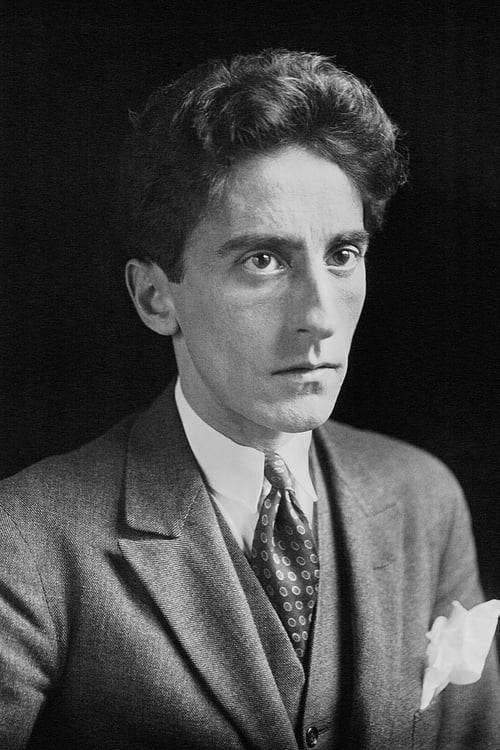
Story
The Orchestra of the Royal Opera House presents a new production of Poulenc's short opera La Voix Humaine, featuring soprano Danielle de Niese and shot on location in Paris and London.

Story
A woman spends a surreal evening unraveling on the phone with her recently lost lover.

Story
The Human Voice is a contemporary adaptation of the 1928 stage play by Jean Cocteau, and "La Voix Humaine," the 1958 chamber opera by Francis Poulenc. In a radically new production The Human Voice presents a flip of gender, and a metaphor of global pandemic. Now in English, Isaiah Bell sings to his male lover, and into the abyss of COVID. In a Zoom call impaired by lag and freeze and dropped signals, technology is once again enemy to intimacy. The agony of failed love is heightened by the necessity of distance, by the anaesthetic of the machine.

Self (archive footage)
A documentary view of the galas of Paris’s Palais Garnier in the 1950s and ’60s.
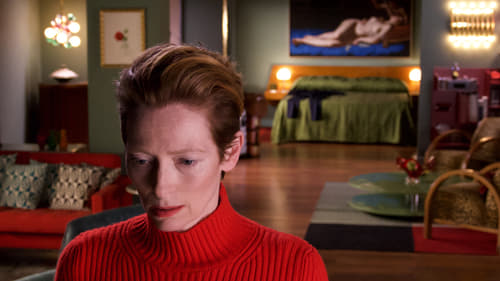
Theatre Play
A woman watches time passing next to the suitcases of her ex-lover (who is supposed to come pick them up but never arrives) and a restless dog who doesn't understand that his master has abandoned him.

Self (archive footage)
Portrait of Panama Al Brown, a great boxer in the 30's, and its story with France, with a focus on its relationship with Jean Cocteau, surrealist, poet, director, artist.

Writer
A film adaptation of the one-woman play by Jean Cocteau starring Shelby Satterthwaite as a woman who deals with the emotional turmoils of talking to her lover one last time over the phone.

Self (archive footage)
French artist Jean Cocteau's multifaceted work across poetry, plays, paintings and film made him one of the leading creative figures of the Parisian avant-garde movement. Featuring Cocteau's own writings read by actor Timothée Chalamet, explore the dream-like quality of Cocteau's one of a kind oeuvre.

Writer
Running through Bartók’s disenchanted tale, whose haunting music was initially condemned as unplayable, and the expression of despair in Poulenc’s monologue, the director Krzysztof Warlikowski perceives a shared dramatic thread, a shared feminine consciousness and a shared sense of imprisonment and suffocation: for the woman who penetrates the confines of Bluebeard’s castle and Elle, the woman who clings to a telephone conversation with a man as the only thing worth living for, are condemned to share the same fate. And this man she speaks to, does he really exist? Unless the director has interpreted Cocteau’s words to the letter and the telephone has become a “terrifying weapon that leaves no trace, makes no noise”…

Story
On a foggy afternoon, a woman who is lost in the middle of the countryside, finally reaches him on the phone. She calls him “darling” but has to give back his letters.

Writer
A woman’s last phone conversation with her lover, who now loves someone else.

Story
In 1930 Jean Cocteau premiered "La Voz Humana" in Paris. In 2013, actress Karina Gidi interprets "La Voz Humana" under the direction and adaptation of the renowned director Antonio Castro in Mexico.
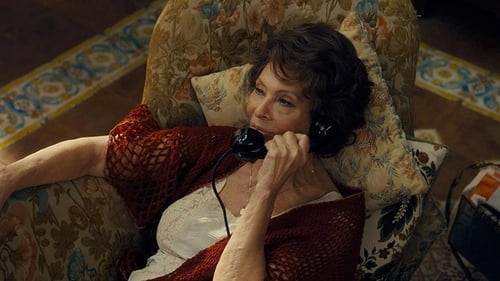
Story
'Human Voice' is based on Jean Cocteau's iconic one woman play of the same name. Set against the backdrop of Naples, Italy, in 1950, this romantic drama tells the story of Angela, (played by Sophia Loren), a woman in the twilight of her years who rides the emotional roller coaster of her last telephone conversation with the man she loves as he is leaving her for another woman.

Writer
The frustrated loves of Jean Cocteau and Raymond Radiguet at the beginning of the 1920s. The death of Radiguet that sank Cocteau into opium. A story under the influence of drugs. A narrative in the spirit of Cocteau. And all this in a musical.

Self (archive footage)
A look at the life and art of Ms. Iran Darroudi, one of the most important contemporary Iranian painters, who has divided her time between Tehran and Paris for the past fifty years. The film describes the various influences in her life and how she came to cultivate a style that merges the western surrealism with eastern mysticism

Theatre Play

Self (archive footage)
This revealing documentary from director Philippe Kohly examines the storied life of renowned soprano Maria Callas, from her troubled childhood in New York City to her scandal-laden but triumphant international career in opera. Featuring archival interviews with Callas herself and footage of contemporaries such as her lover Aristotle Onassis, this celebration of "La Divina" pays tribute to her enduring legacy some three decades after her death.
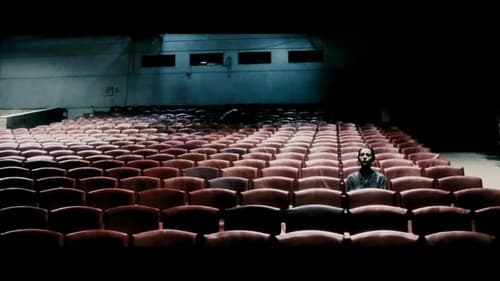
Self (segment "47 Ans Après") (archive footage)
A collective film of 33 shorts directed by different directors about their feeling about cinema.

self

Self (archive footage)
This documentary consists mainly of archive interviews of Jean Cocteau, and it features interesting contributions by Jean Marais and especially Jean-Luc Godard, who discusses Cocteau's foray into cinema. The film documents all the artistic media explored by a man who defined himself, first and foremost, as a poet.

Self
Jean Cocteau (1889-1963), was a French poet, novelist, dramatist, designer, and filmmaker, whose versatility, unconventionality, and enormous output brought him international acclaim. As a leading member of the surrealist movement, he had a great influence on the work of others.

Writer
On stage, the actress talks about her life in the 20th-century French theatre, the great authors she played and the famous stage directors of the time who directed her.

Writer
Merlin, shot on 35mm, is an adaptation of Cocteau's play "Knights of the Round Table."

Writer
La Voix Humaine is a concerto for soprano and orchestra, centering on the break-up of a relationship by telephone. It represents one side of a conversation between a young woman (sung by American soprano, Julia Migenes) and her lover, who has jilted her. In a 1930s, Parisian apartment, a woman is seen making for the door. As she passes the telephone, it rings. From now on she sings, sitting, standing, on her knees, pacing up and down the room, pulling at the telephone cord, going through every emotion until ultimately, in despair, she takes her own life. Jean Cocteau wrote, it is not just that the telephone is sometimes more dangerous than the revolver but that its tangled cord drains us of our strength, while giving us nothing in return.
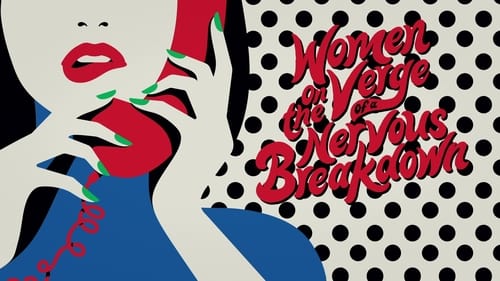
Theatre Play
Pepa resolves to kill herself with a batch of sleeping-pill-laced gazpacho after her lover leaves her. Fortunately, she is interrupted by a deliciously chaotic series of events.

Self (voice) (archive footage)
20 minute music documentary shot in two days of November 1984 in, and around the outskirts of, Tokyo, Japan. A large part of the music was completed during that same month and recorded over a period of three days.

Self (archive footage)
Jean Cocteau reminisces about the people he has known throughout his long life.
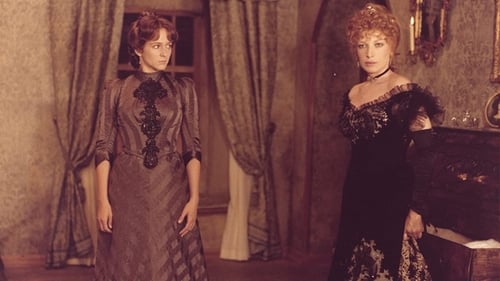
Writer
A hunted man breaks into the castle at Oberwald to kill the Queen, but faints before doing so. He is Sebastian, the splitting image of the King who was assassinated on his wedding day. The Queen discovers that Sebastian once wrote a subversive poem that she liked, even though it was attacking her. The Queen dares Sebastian to kill her, otherwise she vows to kill him.

Story
After “five years of happiness,” a love affair is ending. The woman uses the telephone as the last remaining connection with the man, who is now planning to marry someone else.

Story
Over the course of one day, a woman carries on a vacillating conversation with her lover over several phone calls. She is at times conciliatory, playful, teasing, remorseful, sad, manipulative, depressed, understanding, patient, desperate, manipulative, cloying, and finally accepting of his final farewell. It seems her lover has now found a younger more accomadating woman who will supersede the main character. It is quite sad how he has toyed with her over the years and the efforts she takes to please him, when clearly to him she is just a garment to put on when convenient or to use when lonesome and he really does not care for her. Very well written and acted.

Writer
Tv Movie with Alain Delon

Theatre Play
A queen lives secluded in her chambers, mourning the loss of her husband on their wedding day ten years from then. Stanislas, a suicidal poet and anarchist, enters her apartments with the intent of killing her. When he appears, wounded, fleeing the guards, she is struck by his resemblance to the late king...

Book
An elegant young woman in her messy room answers the phone call from her lover. This one, who intends to leave her, tries to make her understand what he is up to without hurting her too much, hypersensitive as she is . All means are good: big words, cajolery, denial, lies. As for the woman, who senses that this is the end, she desperately tries to win him back, passing from tenderness to passion, from the threat of attempted suicide to calm, from regret to outbursts of violence.

Story
A monologue of a woman talking on the phone with her longterm lover who is about to marry another girl.

Dialogue
In the First World War, when Paris is expected to fall to the Germans, the attractive widow, Princesse de Bormes, organises a convoy of cars to evacuate the wounded from the front, and bring them back to her villa in Paris to recuperate. The authorities will not give them passes until an innocent 16-year-old boy, Guillaume Thomas de Fontenoy, joins them and is mistaken as the nephew of the popular General de Fontenoy. The Princess is enraptured by Thomas and her daughter, Henriette, falls in love with him. However Thomas feels impelled to see more of the action of the war.

Author
In the First World War, when Paris is expected to fall to the Germans, the attractive widow, Princesse de Bormes, organises a convoy of cars to evacuate the wounded from the front, and bring them back to her villa in Paris to recuperate. The authorities will not give them passes until an innocent 16-year-old boy, Guillaume Thomas de Fontenoy, joins them and is mistaken as the nephew of the popular General de Fontenoy. The Princess is enraptured by Thomas and her daughter, Henriette, falls in love with him. However Thomas feels impelled to see more of the action of the war.

Scenario Writer
In the First World War, when Paris is expected to fall to the Germans, the attractive widow, Princesse de Bormes, organises a convoy of cars to evacuate the wounded from the front, and bring them back to her villa in Paris to recuperate. The authorities will not give them passes until an innocent 16-year-old boy, Guillaume Thomas de Fontenoy, joins them and is mistaken as the nephew of the popular General de Fontenoy. The Princess is enraptured by Thomas and her daughter, Henriette, falls in love with him. However Thomas feels impelled to see more of the action of the war.

Narrator (voice)
This short documentary film is conceived as a stroll through the valley of Thebes and the temple of Karnak.

Writer
This short documentary film is conceived as a stroll through the valley of Thebes and the temple of Karnak.

Self

Self
This documentary is a portrait of Proust composed of recollections by those who knew him. Intercut with reading from his works.

Writer
Just a couple of months before his death, in August 1963, he made one last film: a 25-minute short entitled Jean Cocteau s’adresse à l’an 2000 (Cocteau addresses the year 2000). The film comprises one still and highly sober shot of Cocteau facing the camera head-on to address the youth of the future. Once recorded, this spoken message for the 21st century was wrapped up, sealed and posted on the understanding that it would be opened only in the year 2000 (as it turned out, it was discovered and exhumed a few years shy of that date). If in The Testament Cocteau portrays himself as a living anachronism, a lonesome classical modernist loitering in space-time in the same buckskin jacket and tie while lost in the spectral light of his memories, here he acknowledges explicitly the irony of his phantom-like state: by the time the viewer sees this image, he, J. C., our saviour Poet, will long be dead.

Director
Just a couple of months before his death, in August 1963, he made one last film: a 25-minute short entitled Jean Cocteau s’adresse à l’an 2000 (Cocteau addresses the year 2000). The film comprises one still and highly sober shot of Cocteau facing the camera head-on to address the youth of the future. Once recorded, this spoken message for the 21st century was wrapped up, sealed and posted on the understanding that it would be opened only in the year 2000 (as it turned out, it was discovered and exhumed a few years shy of that date). If in The Testament Cocteau portrays himself as a living anachronism, a lonesome classical modernist loitering in space-time in the same buckskin jacket and tie while lost in the spectral light of his memories, here he acknowledges explicitly the irony of his phantom-like state: by the time the viewer sees this image, he, J. C., our saviour Poet, will long be dead.

Self
Just a couple of months before his death, in August 1963, he made one last film: a 25-minute short entitled Jean Cocteau s’adresse à l’an 2000 (Cocteau addresses the year 2000). The film comprises one still and highly sober shot of Cocteau facing the camera head-on to address the youth of the future. Once recorded, this spoken message for the 21st century was wrapped up, sealed and posted on the understanding that it would be opened only in the year 2000 (as it turned out, it was discovered and exhumed a few years shy of that date). If in The Testament Cocteau portrays himself as a living anachronism, a lonesome classical modernist loitering in space-time in the same buckskin jacket and tie while lost in the spectral light of his memories, here he acknowledges explicitly the irony of his phantom-like state: by the time the viewer sees this image, he, J. C., our saviour Poet, will long be dead.
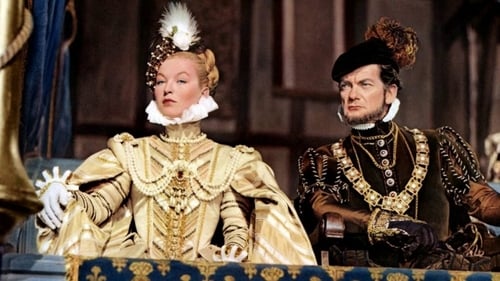
Adaptation
When a young teen marries the Prince of Cleves, more than twice her age, she automatically becomes an official Princess and takes her new position to heart. Although distracted by the elite entertainments found at court, the princess cannot help but mourn her impossible love for the dashing Duc de Nemours.
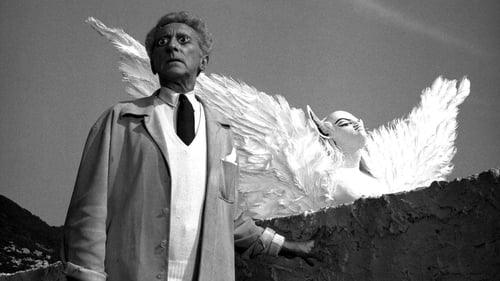
Self, the Poet
Outside time and reality, the experiences of a poet. The judgement of the young poet by Heurtebise and the Princess, the Gypsies, the palace of Pallas Athena, the spear of the Goddess which pierces the poet's heart, the temptation of the Sphinx, the flight of Oedipus and the final Assumption. This film is the third part of Cocteau's Orphic Trilogy, which consists of The Blood of a Poet (1930), Orpheus (1950) and Testament of Orpheus (1960).

Writer
Outside time and reality, the experiences of a poet. The judgement of the young poet by Heurtebise and the Princess, the Gypsies, the palace of Pallas Athena, the spear of the Goddess which pierces the poet's heart, the temptation of the Sphinx, the flight of Oedipus and the final Assumption. This film is the third part of Cocteau's Orphic Trilogy, which consists of The Blood of a Poet (1930), Orpheus (1950) and Testament of Orpheus (1960).

Director
Outside time and reality, the experiences of a poet. The judgement of the young poet by Heurtebise and the Princess, the Gypsies, the palace of Pallas Athena, the spear of the Goddess which pierces the poet's heart, the temptation of the Sphinx, the flight of Oedipus and the final Assumption. This film is the third part of Cocteau's Orphic Trilogy, which consists of The Blood of a Poet (1930), Orpheus (1950) and Testament of Orpheus (1960).
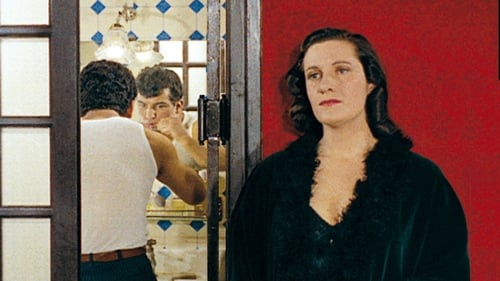
Theatre Play
An adaptation of Jean Cocteau's play of a woman lecturing her indifferent lover.

Writer
Short film by Harry Kümel based upon a poem by Jean Cocteau.

Self, a director
A man dreams he is in a wax museum after it is closed for the night.The statues come to life and behave in mysterious ways.

Writer
An experimental movie based on a poem of the French writer and director Jean Cocteau about a servant who fantasises about killing the lady of the house.
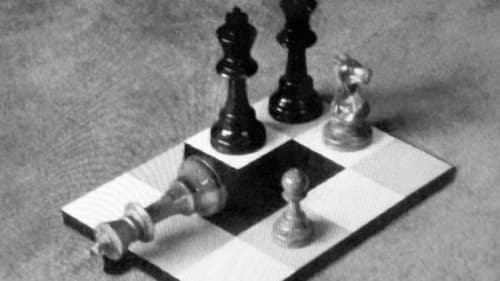
Co-Director
8 x 8: A Chess-Sonata in 8 Movements is an American experimental film directed by Hans Richter, Marcel Duchamp, and Jean Cocteau. Described by Richter as "part Freud, part Lewis Carroll" and filmed partially on the lawn of Duchamp's summer house in Southbury, Connecticut.

8 x 8: A Chess-Sonata in 8 Movements is an American experimental film directed by Hans Richter, Marcel Duchamp, and Jean Cocteau. Described by Richter as "part Freud, part Lewis Carroll" and filmed partially on the lawn of Duchamp's summer house in Southbury, Connecticut.

Writer
One of the first filmed portraits of a jazz musician.

Self
Short by Herbert Seggelke.

Theatre Play
Yvonne is seething when her devoted son, Michael, declares his intention to marry Madeleine, despite the latter's admitting to having an affair with a mysterious older man. At the same time, George, Michael's father, confides in Yvonne's sister, Leo, that he is in fact Madeleine's other lover. Together, they hatch a plot to end Madeleine's hopes of marriage - by threatening to reveal George's scandalous secret to his son.

Self
Cocteau takes the viewer on a tour of a friend's villa on the French coast (a major location used in Testament of Orpheus). The house itself is heavily decorated, mostly by Cocteau (and a bit by Picasso), and we are given an extensive tour of the artwork. Cocteau also shows us several dozen paintings as well. Most cover mythological themes, of course. He also proudly shows paintings by Edouard Dermithe and Jean Marais and plays around his own home in Villefranche.

Director
Cocteau takes the viewer on a tour of a friend's villa on the French coast (a major location used in Testament of Orpheus). The house itself is heavily decorated, mostly by Cocteau (and a bit by Picasso), and we are given an extensive tour of the artwork. Cocteau also shows us several dozen paintings as well. Most cover mythological themes, of course. He also proudly shows paintings by Edouard Dermithe and Jean Marais and plays around his own home in Villefranche.
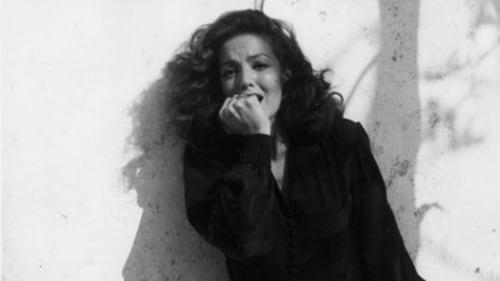
Writer
A woman suffers from amnesia after killing her husband, who was just about to demand a divorce for having found her engaging in an affair with a lover, who is only interested in her to find where some precious jewels are hidden.
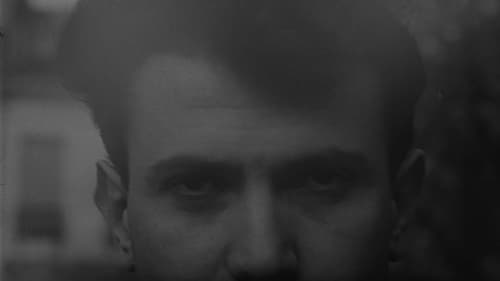
Self
In this experimental film, Isidore Isou, the leader of the lettrist movement, lashes out at conventional cinema and offers a revolutionary form of movie-making: through scratching and bleaching the film, through desynchronizing the soundtrack and the visual track, through deconstructing the story, he aims to renew the seventh art the same way he tried to revolutionize the literary world.

Self
Variations on the cultural and intellectual explosion in the Saint-Germain-des-Prés district in 1946.
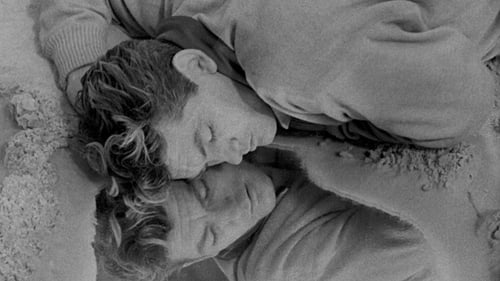
Narrator (voice) (uncredited)
At the Café des Poètes in Paris, a fight breaks out between the poet Orphée and a group of resentful upstarts. A rival poet, Cègeste, is killed, and a mysterious princess insists on taking Orpheus and the body away in her Rolls-Royce. Orphée soon finds himself in the underworld, where the Princess announces that she is, in fact, Death. Orpheus escapes in the car back to the land of the living, only to become obsessed with the car radio.

Writer
At the Café des Poètes in Paris, a fight breaks out between the poet Orphée and a group of resentful upstarts. A rival poet, Cègeste, is killed, and a mysterious princess insists on taking Orpheus and the body away in her Rolls-Royce. Orphée soon finds himself in the underworld, where the Princess announces that she is, in fact, Death. Orpheus escapes in the car back to the land of the living, only to become obsessed with the car radio.

Director
At the Café des Poètes in Paris, a fight breaks out between the poet Orphée and a group of resentful upstarts. A rival poet, Cègeste, is killed, and a mysterious princess insists on taking Orpheus and the body away in her Rolls-Royce. Orphée soon finds himself in the underworld, where the Princess announces that she is, in fact, Death. Orpheus escapes in the car back to the land of the living, only to become obsessed with the car radio.
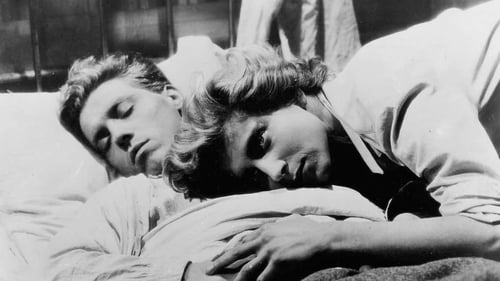
Writer
Elisabeth and her brother Paul live isolated from much of the world after Paul is injured in a snowball fight. As a coping mechanism, the two conjure up a hermetic dream of their own making. Their relationship, however, isn't exactly wholesome. Jealousy and a malevolent undercurrent intrude on their fantasy when Elisabeth invites the strange Agathe to stay with them -- and Paul is immediately attracted to her.

Narrator (voice)
Elisabeth and her brother Paul live isolated from much of the world after Paul is injured in a snowball fight. As a coping mechanism, the two conjure up a hermetic dream of their own making. Their relationship, however, isn't exactly wholesome. Jealousy and a malevolent undercurrent intrude on their fantasy when Elisabeth invites the strange Agathe to stay with them -- and Paul is immediately attracted to her.

Novel
Elisabeth and her brother Paul live isolated from much of the world after Paul is injured in a snowball fight. As a coping mechanism, the two conjure up a hermetic dream of their own making. Their relationship, however, isn't exactly wholesome. Jealousy and a malevolent undercurrent intrude on their fantasy when Elisabeth invites the strange Agathe to stay with them -- and Paul is immediately attracted to her.

Self
As the title of this French documentary indicates, Ce Siecle a 50 Ans examines the 20th Century at its halfway point. Utilizing the archives of several European film reserves, director Denise Tua offers a fascinating mosaic of the people and events that shaped the years 1900 to 1950. Complementing the vintage film clips are three dramatized sketches, delineating the romantic customs of three different points in time. These sketches are inadequately performed, and can easily be ignored. Ce Siecle a 50 Ans both preserved and provided celluloid material for scores of future documentaries.

Narrator (voice)
This Moroccan romance is a kind of Arab Tristan and Isolde: the heroine kills herself when she is convinced no one cares for her, the young nobleman she thought would love her is killed by a madwoman.

Narrator (voice) (uncredited)
Young Michel is in love with the attractive Madeleine, so he decides to tell his parents of his intention to marry her. He thinks his announcement is innocent enough; his engagement, however, threatens to reveal dark secrets lurking within his family's home. Yvonne, Michel's overbearing mother, concocts an elaborate scheme to drive Madeleine away, thus keeping uncomfortable household truths from being exposed.

Writer
Young Michel is in love with the attractive Madeleine, so he decides to tell his parents of his intention to marry her. He thinks his announcement is innocent enough; his engagement, however, threatens to reveal dark secrets lurking within his family's home. Yvonne, Michel's overbearing mother, concocts an elaborate scheme to drive Madeleine away, thus keeping uncomfortable household truths from being exposed.

Director
Young Michel is in love with the attractive Madeleine, so he decides to tell his parents of his intention to marry her. He thinks his announcement is innocent enough; his engagement, however, threatens to reveal dark secrets lurking within his family's home. Yvonne, Michel's overbearing mother, concocts an elaborate scheme to drive Madeleine away, thus keeping uncomfortable household truths from being exposed.
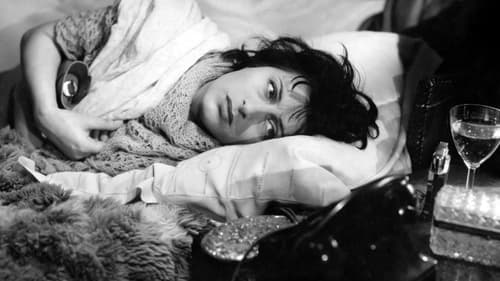
Novel
In the first episode, a heartbroken woman talks to her ex-lover on the phone. In the second, a pregnant woman believes she is carrying the child of Saint Joseph.
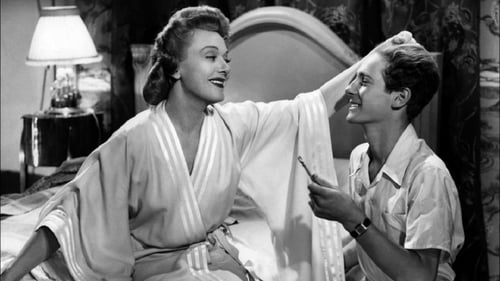
Theatre Play
Political intrigue and psychological drama run parallel. The queen is in seclusion, veiling her face for the ten years since her husband's assassination, longing to join him in death. Stanislas, a poet whose pen name is Azrael, is a suicidal anarchist, his imagination haunted into hate by longing for this queen who's drawn apart. He enters her private quarters intent on killing her then himself, but they fall in love, in part because he looks like the king. Stanislas wants her to regain political power by appearing to the public, and she tries to convince him to find hope and escape. All the while, the queen's enemies plot to keep the lovers together but to thwart their plans.

Writer
Political intrigue and psychological drama run parallel. The queen is in seclusion, veiling her face for the ten years since her husband's assassination, longing to join him in death. Stanislas, a poet whose pen name is Azrael, is a suicidal anarchist, his imagination haunted into hate by longing for this queen who's drawn apart. He enters her private quarters intent on killing her then himself, but they fall in love, in part because he looks like the king. Stanislas wants her to regain political power by appearing to the public, and she tries to convince him to find hope and escape. All the while, the queen's enemies plot to keep the lovers together but to thwart their plans.

Director
Political intrigue and psychological drama run parallel. The queen is in seclusion, veiling her face for the ten years since her husband's assassination, longing to join him in death. Stanislas, a poet whose pen name is Azrael, is a suicidal anarchist, his imagination haunted into hate by longing for this queen who's drawn apart. He enters her private quarters intent on killing her then himself, but they fall in love, in part because he looks like the king. Stanislas wants her to regain political power by appearing to the public, and she tries to convince him to find hope and escape. All the while, the queen's enemies plot to keep the lovers together but to thwart their plans.
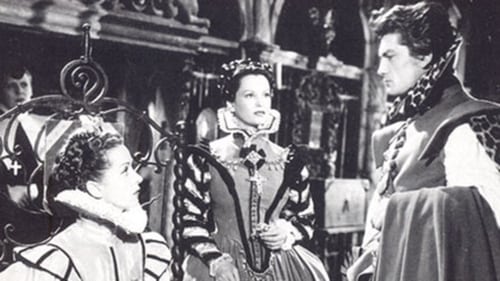
Adaptation
Exiled from the court of Spain, Don Salluste, the chief of police, wants to take revenge on the Queen. One day he meets Ruy Blas, a young student who happens to be a lookalike of Don Cesar, his nephew. Salluste disguises Ruy Blas and presents him as Don Cesar. It doesn't take long before Ruy Blas, intelligent, virtuous and generous as he is becomes popular and the Queen, who has fallen in love with him, appoints him Prime Minister. All seems for the best in the best of worlds but Salluste has not forgotten his revenge, far from that ...

Director
Produced and conceived by French filmmakers Jean Cocteau and François Villiers, with a screenplay by Langston Hughes, Rhythm of Africa takes a look at the special ceremonial dance of atonement in Chad. The heartbeat of the jungle, the day-to-day life in the modernizing village, and the bustling marketplace take on a hypnotizing rhythm of their own. A changing Africa asserts itself in a changing world.
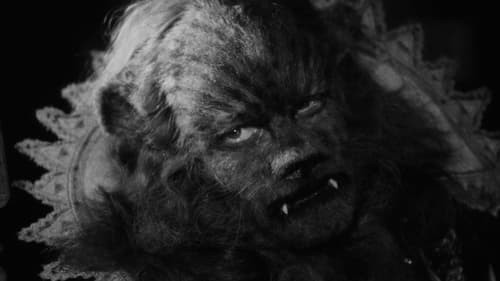
Voice of Magic (voice) (uncredited)
The story of a gentle-hearted beast in love with a simple and beautiful girl. She is drawn to the repellent but strangely fascinating Beast, who tests her fidelity by giving her a key, telling her that if she doesn't return it to him by a specific time, he will die of grief. She is unable to return the key on time, but it is revealed that the Beast is the genuinely handsome one. A simple tale of tragic love that turns into a surreal vision of death, desire, and beauty.

Dialogue
The story of a gentle-hearted beast in love with a simple and beautiful girl. She is drawn to the repellent but strangely fascinating Beast, who tests her fidelity by giving her a key, telling her that if she doesn't return it to him by a specific time, he will die of grief. She is unable to return the key on time, but it is revealed that the Beast is the genuinely handsome one. A simple tale of tragic love that turns into a surreal vision of death, desire, and beauty.

Story
The story of a gentle-hearted beast in love with a simple and beautiful girl. She is drawn to the repellent but strangely fascinating Beast, who tests her fidelity by giving her a key, telling her that if she doesn't return it to him by a specific time, he will die of grief. She is unable to return the key on time, but it is revealed that the Beast is the genuinely handsome one. A simple tale of tragic love that turns into a surreal vision of death, desire, and beauty.

Screenplay
The story of a gentle-hearted beast in love with a simple and beautiful girl. She is drawn to the repellent but strangely fascinating Beast, who tests her fidelity by giving her a key, telling her that if she doesn't return it to him by a specific time, he will die of grief. She is unable to return the key on time, but it is revealed that the Beast is the genuinely handsome one. A simple tale of tragic love that turns into a surreal vision of death, desire, and beauty.

Director
The story of a gentle-hearted beast in love with a simple and beautiful girl. She is drawn to the repellent but strangely fascinating Beast, who tests her fidelity by giving her a key, telling her that if she doesn't return it to him by a specific time, he will die of grief. She is unable to return the key on time, but it is revealed that the Beast is the genuinely handsome one. A simple tale of tragic love that turns into a surreal vision of death, desire, and beauty.

Writer
"Black Friendship" - The commentary recalls that Radio Brazzaville was, from June 18, 1943, the contact of the French settlements and the metropolis, bush stations participate in the organization of the resistance.

Narrator
"Black Friendship" - The commentary recalls that Radio Brazzaville was, from June 18, 1943, the contact of the French settlements and the metropolis, bush stations participate in the organization of the resistance.

Dialogue
A love story that follows the maneuverings of a society lady as she connives to initiate a scandalous affair between her aristocratic ex-lover and a prostitute.

Reciter (voice)
Sitting at his desk, Guitry gives us a lecture on French history from Joan of Arc to the Occupation, with some focus on a number of its great writers and musicians.

Alfred de Musset
On the death of the famous singer Maria Malibran, Countess Merlin retraces the main lines of the unusual destiny of this young woman entirely devoted to her art.
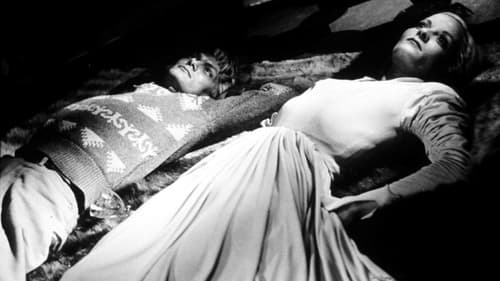
Screenplay
A retelling of Tristan and Isolde set in 1940s France.

Writer
Elfy, Countess of Saint-Hélié's daughter, was brought up with her foster sister Anne, in an old dilapidated castle whose landlord, Baron Julius Carol, disappeared mysteriously some day. The two girls had a playmate, Hervé, the son of the gamekeeper. Now that they are adult, Anne is in love with Hervé while Elfy thinks she loves the young man. One day, the baron's mummified body is found in an oubliette and the secret of the estate is revealed...

Le baron Julius Carol - le baron fantôme
Elfy, Countess of Saint-Hélié's daughter, was brought up with her foster sister Anne, in an old dilapidated castle whose landlord, Baron Julius Carol, disappeared mysteriously some day. The two girls had a playmate, Hervé, the son of the gamekeeper. Now that they are adult, Anne is in love with Hervé while Elfy thinks she loves the young man. One day, the baron's mummified body is found in an oubliette and the secret of the estate is revealed...

Screenplay
In his prison cell, the composer Remi Bonvent composed an opera, The columns bed. The director of the prison, Porey Cave, succeeds made believe he is the author of this work. The death of the two protagonists will prevent the discovery of the truth.

Adaptation
Monsieur Jourdain is a dangerous madman : he wants to share his fortune! His relatives do what any sensible fellow on earth would do: they have him committed to a mental hospital. But Jourdain manages to escape and decides to make everybody happy except... his heirs!
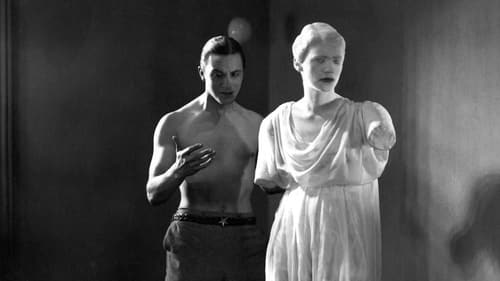
Bit Part (uncredited)
Told in four episodes, an unnamed artist is transported through a mirror into another dimension, where he travels through various bizarre scenarios. This film is the first part of Cocteau's Orphic Trilogy, which consists of The Blood of a Poet (1930), Orpheus (1950) and Testament of Orpheus (1960).

Editor
Told in four episodes, an unnamed artist is transported through a mirror into another dimension, where he travels through various bizarre scenarios. This film is the first part of Cocteau's Orphic Trilogy, which consists of The Blood of a Poet (1930), Orpheus (1950) and Testament of Orpheus (1960).

Writer
Told in four episodes, an unnamed artist is transported through a mirror into another dimension, where he travels through various bizarre scenarios. This film is the first part of Cocteau's Orphic Trilogy, which consists of The Blood of a Poet (1930), Orpheus (1950) and Testament of Orpheus (1960).

Director
Told in four episodes, an unnamed artist is transported through a mirror into another dimension, where he travels through various bizarre scenarios. This film is the first part of Cocteau's Orphic Trilogy, which consists of The Blood of a Poet (1930), Orpheus (1950) and Testament of Orpheus (1960).

Director
A short film about a famous writer (acted by Cocteau himself) who loses control of his hand and begins to write letters and articles denouncing himself.

A short film about a famous writer (acted by Cocteau himself) who loses control of his hand and begins to write letters and articles denouncing himself.

Story
Swedish soprano Elisabeth Söderström takes on Jean Cocteau's The Human Voice.
